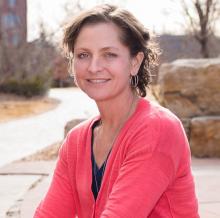Faculty and Staff Grants from December 2019

Congratulations to the following faculty and staff members who received grants and awards in December 2019.
Christa Doty, senior program associate, and Carole Wilcox, director of organizational development and capacity building, at the Butler Institute for Families
- Grant from Southern Connecticut State University for "CT Coaching Series"
- Project abstract: Butler will facilitate the implementation of a coaching approach into their development of the child welfare workforce of the Connecticut Department of Children and Families through training delivery, virtual learning circles and ongoing coaching.
Rui Fan, assistant professor in the Department of Electrical and Computer Engineering at the Ritchie School of Engineering and Computer Science
- Grant from Battelle National Labs, subaward from the Department of Energy for "Data-Driven Approaches Bridging Protection Gaps in Power System"
- Project abstract: This project will assist in the development of advanced data-driven algorithms to bridge existing protection gaps in power. A protection gap describes inadequacies in protection schemes used to reduce likelihood of equipment damage and ensure personal safety. Traditional protection schemes mainly rely on commercial relays to issue tripping commands when certain preset thresholds are exceeded. However, it is sometimes very difficult to determine accurate thresholds. In this way, the resilience and reliability of power systems will be further enhanced.
Brette Garner, assistant professor in the Department of Teaching and Learning Sciences at the Morgridge College of Education
- Grant from the Colorado Department of Education, subaward from Generation Schools Network Inc. for "San Luis Valley BOCES"
- Project abstract: In many urban and suburban schools, teachers' professional development (PD) is organized around professional learning communities, which are both common and effective for supporting instructional improvement. However, rural school teachers often have few — if any — content-area colleagues to collaborate with, as distance between schools in sparsely-populated areas makes it difficult for teachers to meet regularly. This study will seek to understand rural mathematics teachers' opportunities to learn through online and in-person PD in two regions of rural Colorado.
Suzanne Kerns, research associate professor at the Graduate School of Social Work and executive director of the Center for Effective Interventions
- Grant from Community Youth Services for "Community Youth Services Annual Training and Support"
- Project abstract: GSSW's Center for Effective Interventions will provide Multi-Systemic Therapy (MST) clinical support and training for Community Youth Services. MST is an intensive, home-based treatment model for families with children ages 12–17 who have serious delinquency and substance use problems — including gang involvement, runaway behaviors and significant family discord — and are at high risk for juvenile justice involvement.
Erika Manczak, assistant professor in the Department of Psychology at the College of Arts, Humanities and Social Sciences
- Grant from the Brain & Behavioral Research Foundation for "Molecular and Protein-Level Markers in a Social Immunological Model of Depressive Systems"
- Project abstract: Depression is a prevalent, recurrent and frequently chronic disorder that affects nearly 25% of children and adolescents nationally and is associated with significant impairment as well as considerable public health burden. Acknowledging that both biological and psychological processes confer vulnerability to depression, the current project seeks to test an integrative, social-immunological model of depressive symptoms in adolescents and their parents that offers an explanation for how salient environmental experiences can become biologically embedded to confer risk.
Michelle Rozenman, assistant professor; Timothy Sweeny, assistant professor; Anne DePrince, department chair; and Julia Dmitrieva, associate professor in the Department of Psychology at the College of Arts, Humanities and Social Sciences
- Grant from the National Institutes of Health for "Threat Interpretation Bias as Cognitive Marker and Treatment Target in Pediatric Anxiety"
- Project abstract: This project addresses a need for novel experimental therapeutic approaches to directly targeting cognitive mechanisms underlying anxiety in children and adolescents. Building on our prior work and existing literature that identifies interpretation bias as a marker of youth anxiety, we propose a personalized cognitive bias modification intervention to target threat interpretation bias (CBM-I). In a two-phased study, we test CBM-I as an experimental intervention that may significantly reduce interpretation bias, and subsequently reduce anxiety symptoms, in clinically anxious youth.
Paul Rullkoetter, professor in the Department of Mechanical and Materials Engineering at the Daniel Felix Ritchie School of Engineering and Computer Science
- Grant for "In Vivo Evaluation of Femur-Pelvic Positioning"
Kevin Shelburne, senior research scientist in the Department of Mechanical and Materials Engineering at the Daniel Felix Ritchie School of Engineering and Computer Science
- Grant for "In Vivo Evaluation of Medial-Pivot Cruciate-Sacrificing TKA Kinematics, Loading and Mechanics"
Meredith Silverstein, senior research associate at the Butler Institute for Families at the Graduate School of Social Work
- Grant for "CO-SLAW Extension of MAT in Jails"
- Project abstract: This project will evaluate the Northern Colorado Health Alliance (NCHA) efforts to increase access to the treatment of behavioral health care for incarcerated individuals in Larimer and Weld County Jails.























